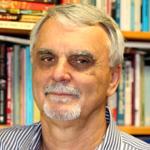
It’s hard to believe, but the issue of Euthanasia is before our Parliament again. One of the reasons I wrote my book, Apologetics Teaching and Preaching – for the Church and the Marketplace, was to equip Christian leaders and the church, like Euthanasia, in knowing how to respond to faith issues that pose ethical dilemmas in today’s society.
In this book, there is a sermon outline I have co-written with Revd. Rod Benson who is an ethicist and was the Public Affairs director of New South Wales Council of Churches when I was President. It explores the issues of Euthanasia. Let me highlight some key aspects from this piece of writing that speak into the issue today.
Common arguments against euthanasia
1. Sanctity of life. Humans are created in the image of God, and human life is therefore of incalculable value. Taking an innocent human life dishonours God who gave it and cannot be condoned.
2. Abuse of vulnerable persons. A patient may feel obliged to consent to euthanasia out of convenience to others (such as health relatives, or tax payers who fund the public health system).
3. Misdiagnoses are possible. Though rare, the misdiagnosis of a terminal illness is possible and death cannot be reversed.
4. Benefits of suffering. The experience of suffering may facilitate character development. Also, suffering may be more in the eyes of the relative or friend than the patient.
5. Playing God. Legalisation of euthanasia would place physicians (or others) in the place of God in determining how and when death occurs.
6. Slippery Slope. Legalisation of voluntary euthanasia may lead society to accept involuntary euthanasia.
7. Patient-doctor relationship. Legalisation of euthanasia may undermine the trust between a patient and their physician, as well as the moral integrity of the medical profession.
8. Health care funding. Legalisation of euthanasia may weaken a society’s resolve to provide adequate funding to care for the dying.
9. Health care methods. Legalisation of euthanasia may undermine the impetus to develop better approaches to the care of suffering and the dying.
10. Smokescreen for murder. Euthanasia may be used as a justification for an act which would otherwise be classified as murder.
Selected church statements
On 16 May 1995 the NSW Council of Churches issued the following media release on euthanasia:
“The practice of euthanasia as the intentional killing of one person by another can never be regarded as the compassionate answer to the burdens which may be suffered by a dying patient. It is not a private matter since it always has serious implications for all members of society. Evidence from Holland, where voluntary euthanasia is permitted under strict conditions, shows that it is quickly followed by non-voluntary euthanasia.
Christian teaching affirms the value of each individual, made in the image of God. Our lives are a gift from God. Neither our own lives, nor the lives of others, are ours to take. Giving one person the power of life and death over another strikes not only at the heart of Christian teaching, but also at the obligation of the State to protect its citizens – particularly the weak and vulnerable. Additionally, it places an unacceptable burden on doctors.
…It may, at times, be judged as necessary to withdraw or withhold certain treatments because they are considered futile or unduly burdensome. This differs radically and in a morally significant way from intentional killing.
The compassionate answer is to provide the best palliative care and medical services possible for the patients, and to give support and comfort to all those affected by the pain and suffering of their loved ones. Even in the midst of these, the Christian hope of eternal life beyond death stands firm, giving dignity and meaning to death itself”.
The 1995 statement by the NSW Council of Churches offers a considered evangelical Christian response to the increase pressure on legislators and health care providers to relax current prohibitions on active euthanasia. It outlines six principles:
(a) All persons are made in the image of God and therefore possess intrinsic worth;
(b) Intentional killing can never be a compassionate response to suffering;
(c) The state has an obligation to protect its citizens, particularly the weak and vulnerable, from abuse;
(d) Legislation of euthanasia would place an unacceptable burden on health-care professionals;
(e) Best medical practice may require the withdrawal or withholding of certain treatments because they are considered futile or unduly burdensome to the patient;
(f) The preferred compassionate response to suffering is to provide the best possible palliative care and medical services.
Biblical principles undergirding this statement include the sanctity of human life (see Gen 1:27; Ecc 3:1-2; 1 Cor 6:19-20; Heb 9:27); an ethic of compassionate care (Micah 6:8, Lk 10:25-37); and the Christian hope beyond death (1 Cor 15, etc). Those who follow Jesus,
“are called to heal the sick where we can, comfort the dying always, and entrust the dead to God. But we are never called, and we are never free, to hasten the dying across the threshold into eternity” (David P. Gushee, “Killing with kindness”, Christianity Today, 7 Dec 2004), 62.
Together we must ensure that we take a stand and inform all people of good will that this is a key time for expressing real concerns about Euthanasia. Human dignity and human worth are at the centre of the Christian ethic.

Ross Clifford’s book is Leading Lawyers’ Case for the Resurrection. Ross is a former lawyer, Baptist Pastor and now Principal of Morling Theological College, Macquarie Park.

Rev Dr Ross Clifford AM is the Principal of Morling College (NSW Baptist) and author of numerous books many of which focus on Christian Apologetics. He is a Vice President of the Baptist World Alliance, President of the Asian Baptist Association, an acclaimed international preacher and speaker, a columnist in many Christian publications, winner of many national and international awards and for many years the Sunday evening Sydney Radio 2CH host. Ross is married to Bev, father and grand father.